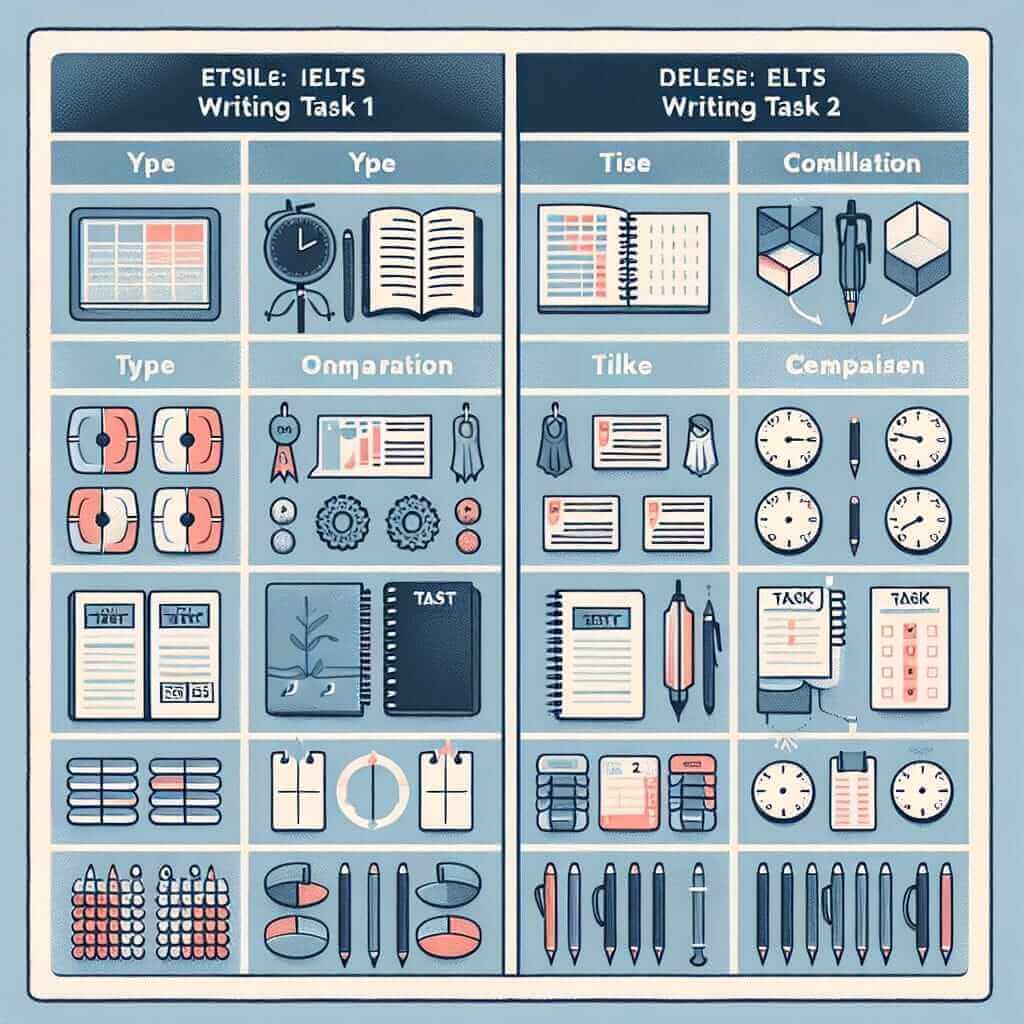As an IELTS instructor with over 20 years of experience, I often encounter this question from my students. It’s a crucial aspect of understanding the IELTS Writing test format and strategizing your preparation. So, let’s break down the answer and explore how you can excel in both tasks.
Understanding the IELTS Writing Test Scoring
The IELTS Writing test has two tasks, Task 1 and Task 2, each assessed independently. While both tasks contribute to your overall Writing band score, Task 2 is indeed worth more than Task 1.
Here’s the breakdown:
- Task 1 (Academic): Accounts for one-third of your total Writing score.
- Task 2 (General Training and Academic): Accounts for two-thirds of your total Writing score.
This weighting means that your performance on Task 2 has a more significant impact on your final Writing band score than your performance on Task 1.
Why is Task 2 Weighted More Heavily?
The higher weighting of Task 2 reflects the emphasis placed on your ability to:
- Develop a complex argument: Task 2 requires you to present a clear and well-structured argument, supporting your ideas with relevant examples and evidence.
- Use a wider range of vocabulary and grammar: You are expected to demonstrate greater linguistic sophistication in Task 2, showcasing your ability to use a broader range of vocabulary and grammatical structures accurately and appropriately.
- Think critically and analyze information: Task 2 questions often present complex issues that require you to think critically, analyze different perspectives, and formulate a well-reasoned response.

Should I Focus Only on Task 2 Then?
While it’s true that Task 2 carries more weight, neglecting Task 1 completely would be a grave mistake. Here’s why:
- A Balanced Score is Crucial: To achieve your desired band score, you need a good performance in both tasks. A low score in Task 1 can significantly impact your overall Writing band, even if you excel in Task 2.
- Task 1 Tests Essential Skills: Task 1 assesses your ability to describe and interpret visual information, a skill valuable in academic and professional settings.
- Confidence Builder: Successfully completing Task 1 within the time limit can boost your confidence for tackling the more demanding Task 2.
Tips for Success in Both Tasks
- Practice Regularly: Consistent practice is key to improving your writing skills for both tasks. Familiarize yourself with the different question types and practice writing within the time limit.
- Focus on Coherence and Cohesion: Ensure your writing is well-organized, with clear topic sentences, supporting details, and smooth transitions between paragraphs.
- Expand Your Vocabulary and Grammar: Actively work on enriching your vocabulary and mastering a variety of grammatical structures to express your ideas with precision and clarity.
- Seek Feedback: Have your writing assessed by experienced IELTS instructors or language partners to identify areas for improvement and refine your writing style.
Conclusion
Understanding the weighting of IELTS Writing tasks is essential for effective preparation. While Task 2 holds more weight, excelling in both tasks is crucial for achieving your target band score. Remember to practice consistently, focus on key skills, and seek feedback to improve your writing proficiency. Good luck!